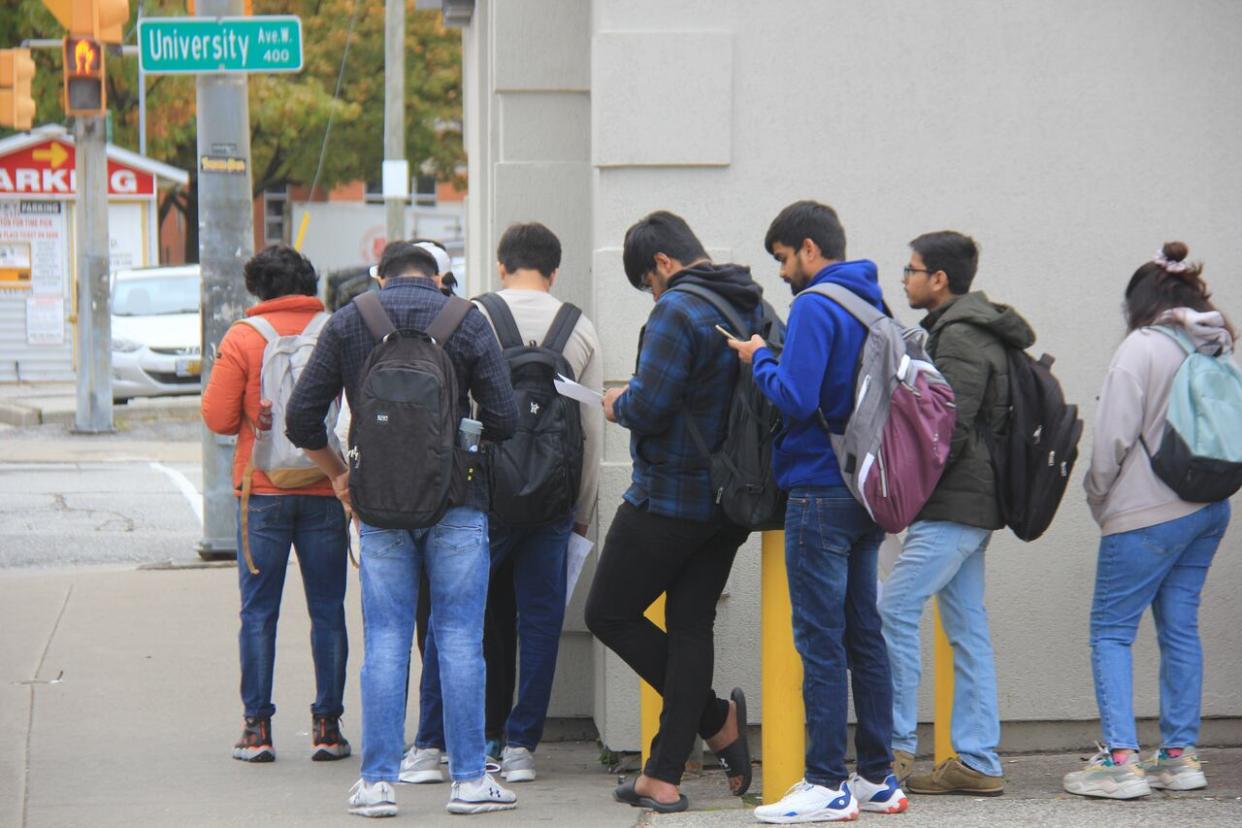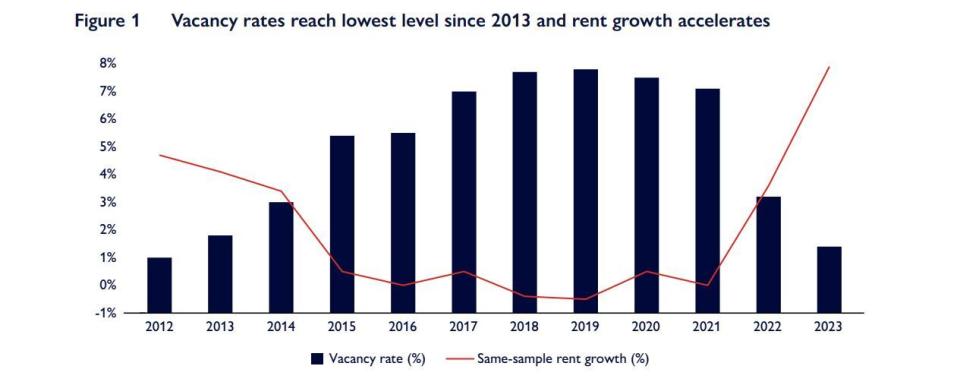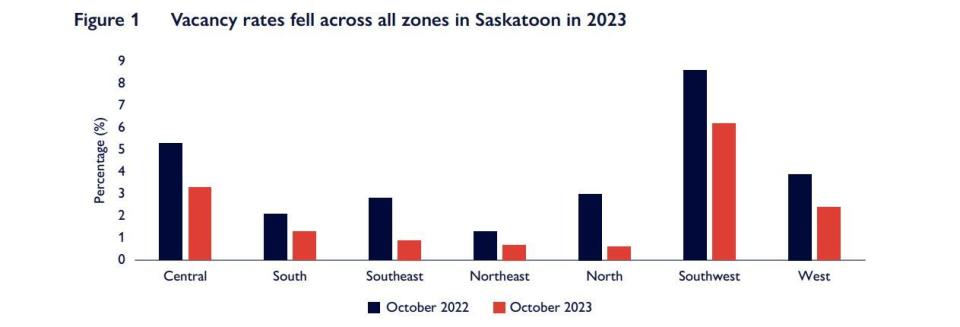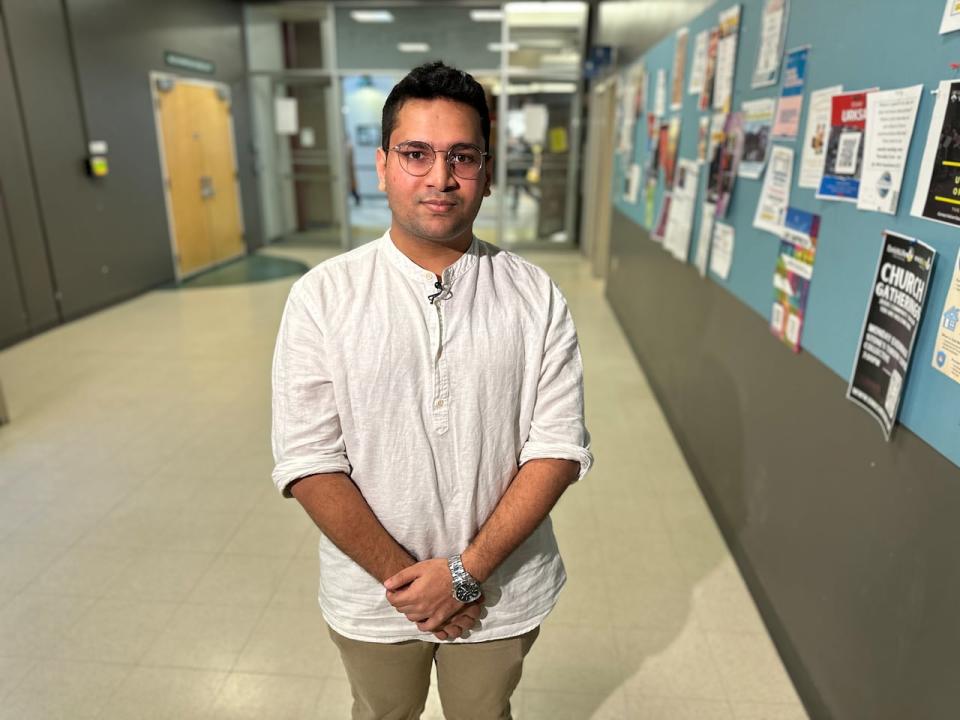Can Sask. handle a potential influx of international students? Existing students say no

Shivangi Sharma, an international student at the University of Regina, says she is "fortunate" to work three part-time jobs while managing her undergraduate studies, since many of her friends are struggling to find employment.
With the federal government's January announcement of a two-year cap on international students, most of whom historically went to B.C. and Ontario, it's possible Saskatchewan could see a reverse effect of an uptick in enrolment. But existing students and recent graduates say infrastructure and economic affordability need to improve.
"Many students are struggling to find jobs.… Right now, a lot of my friends don't even have a single job because of the inflation and job crisis," Sharma, 25, said.
"I really don't think Saskatchewan is prepared for having more students, because they don't have enough jobs at the moment."
How many students are coming and from where?
CBC News accessed data from Immigration, Refugees and Citizenship Canada that gives a breakdown of the intake of international students during the last nine years to different provinces, as well as the countries from where they moved.
From 2015 to 2023, students from India and China made up the largest share of international students. Last year, 278,860 international students came from India and 58,430 from China.
Saskatchewan's share of international students has been growing, but not when it's measured relative to the overall population.
In 2015, Saskatchewan saw 3,905 students coming in. Last year, 12,090 international students — one per cent of the province's population — made their way here. Other provinces have seen more growth.
The enrolment intake rates at the three major educational institutions in Saskatchewan — the University of Saskatchewan, University of Regina and Saskatchewan Polytechnic — show a steady increase in international student enrolment during the past five years, with the top countries of origin being India, China, the Philippines, Nigeria and Vietnam.
Lack of jobs a challenge, graduate says
Mehdi Ebrahimpour, a recent graduate of the University of Saskatchewan, said while he was an international student, it was very difficult to find employment.
"I needed part-time jobs, but it was very difficult to find one … but after graduation, the main reason I found was I lacked Canadian work experience," the 35-year-old said.
Ebrahimpour's prior work experience in Iran was not recognized by Canadian employers. He said the problem is worsening. Many international students CBC News spoke with said there is a scarcity of even minimum wage jobs in Regina and Saskatoon. Some say they are working cash jobs paying $10 per hour. The minimum wage in Saskatchewan is $14 per hour.
"If we have growing numbers, I'm afraid we'll have even more challenges to find a reasonable occupation," Ebrahimpour said. "But the international students are not the main source of the problem. We had this problem even before."

Mehdi Ebrahimpour, a recent graduate of the University of Saskatchewan, says most employers want Canadian work experience but not many are willing to help international students get their foot in the door. (Submitted by Mehdi Ebrahimpour)
Though Ebrahimpour had a scholarship, he said he still struggled paying his rent even when he was "in the cheapest dormitory provided by the university."
"International students have to make ends meet. That's a very challenging thing to do right now."
Krunal Chavda, an international student at the University of Saskatchewan, agreed, saying there is also a shortage of internships — crucial to gain Canadian work experience.
Chavda said he applied for more than 200 internships, but only got called for 10 interviews.
"The job market isn't good right now. The number of people applying for each internship role exceeds 300," he said.
"Now, imagine more students coming through."

Krunal Chavda, an international student at the University of Saskatchewan, says affordability is a main challenge for international students. (Pratyush Dayal/CBC)
Chavda said students can't make ends meet with the inflationary pressures.
"I'm working full time right now and there is little or no savings. Affordability is the biggest issue right now among all international students."
Affordable housing comes at a price
The Canadian Mortgage and Housing Corporation said it "always factors the impacts of immigration, including international students, into our housing market forecasts".
In its January report about the rental market, CMHC found that in Regina, vacancy rates reached their lowest level since 2013.

Taylor Pardy, CMHC’s lead economist for prairies and territories, says Regina's vacancy rate came in at 1.4 per cent which is the lowest since 2013. (Canadian Mortgage and Housing Corporation)
The report also shows that in Saskatoon, the tightening rental market saw vacancy rates drop as rents rose.
Taylor Pardy, CMHC's lead economist for prairies and territories, said with populations growing predominantly through immigration, Regina's vacancy rate was 1.4 per cent and Saskatoon's was two per cent in 2023.
"It's the story of demand just really outpacing supply at the moment," he said.
"We really haven't seen vacancy rates this low for about a decade.… The amount of rental supply hasn't really been that large in Regina. Saskatoon has done a little bit better in that respect."

According to the Canadian Mortgage and Housing Corporation, the surge in demand, predominantly coming through immigration, has led to a vacancy rate drop across most unit types and all zones in Saskatoon. (Canadian Mortgage and Housing Corporation)
Currently, Pardy said there are almost 2,000 units under construction in Saskatoon and 862 in Regina. He said they are anticipating low vacancy rates will continue during the next few years.
He said average rent for a two-bedroom unit in Saskatoon is about $1,360 — nine per cent higher than 2022. In Regina, the rent is a little over $1,300, which is 7.9 per cent higher year over year.
Sharma said students cannot afford these rents, and even having one roommate is not enough.
"I know, like, seven people sharing a two-bedroom space and the rent does not include utilities, and it's tough," Sharma said, noting there are safety concerns in such accommodations.
"We're not like cattle who can be herded.… There is a housing crisis."

Zuhruf Zarooq, an international student at University of Regina, says he stayed in a room partitioned out of a living room when he moved here. (Kirk Fraser/CBC)
Sask. 'isn't ready,' student says
Zuhruf Zarooq, an international student at University of Regina, said he stayed in a room partitioned out of a living room when he moved to Regina, a reality he said is far too common for students.
"It was a two-bedroom condo, three people in one room and another three over in another room and around four people in the living room, just covered with partitions and everything," he said.
"Saskatchewan isn't ready at all because right now they can't even accommodate the current students."
Zarooq said he is also struggling to find part-time jobs.
"Within one month, I got a job at 7-Eleven when I landed here. Now, if I go to the same 7-Eleven, they are full and not hiring," he said.

Shivangi Sharma, an international student at the University of Regina, says besides rising tuition and inflationary pressures, students have to deal with a lack of jobs and a low supply of safe, affordable housing. (Submitted by Shivangi Sharma)
Zarooq said food security is also a pressing issue among students.
"When new students come here, everything is going to affect them, and existing students too," he said.
In addition to issues like affordability, Sharma and other students said the frequency of buses should improve in both the cities.
"A temporary cap on student permits can somewhat address the issue. I don't think it's a permanent solution," she said.
"Will I advise students to move to Saskatchewan at the moment? Maybe not, because we don't have enough jobs here. So, if they're coming with hopes of rainbows and fairies and beautiful skies, it seems a little less possible at the moment."

